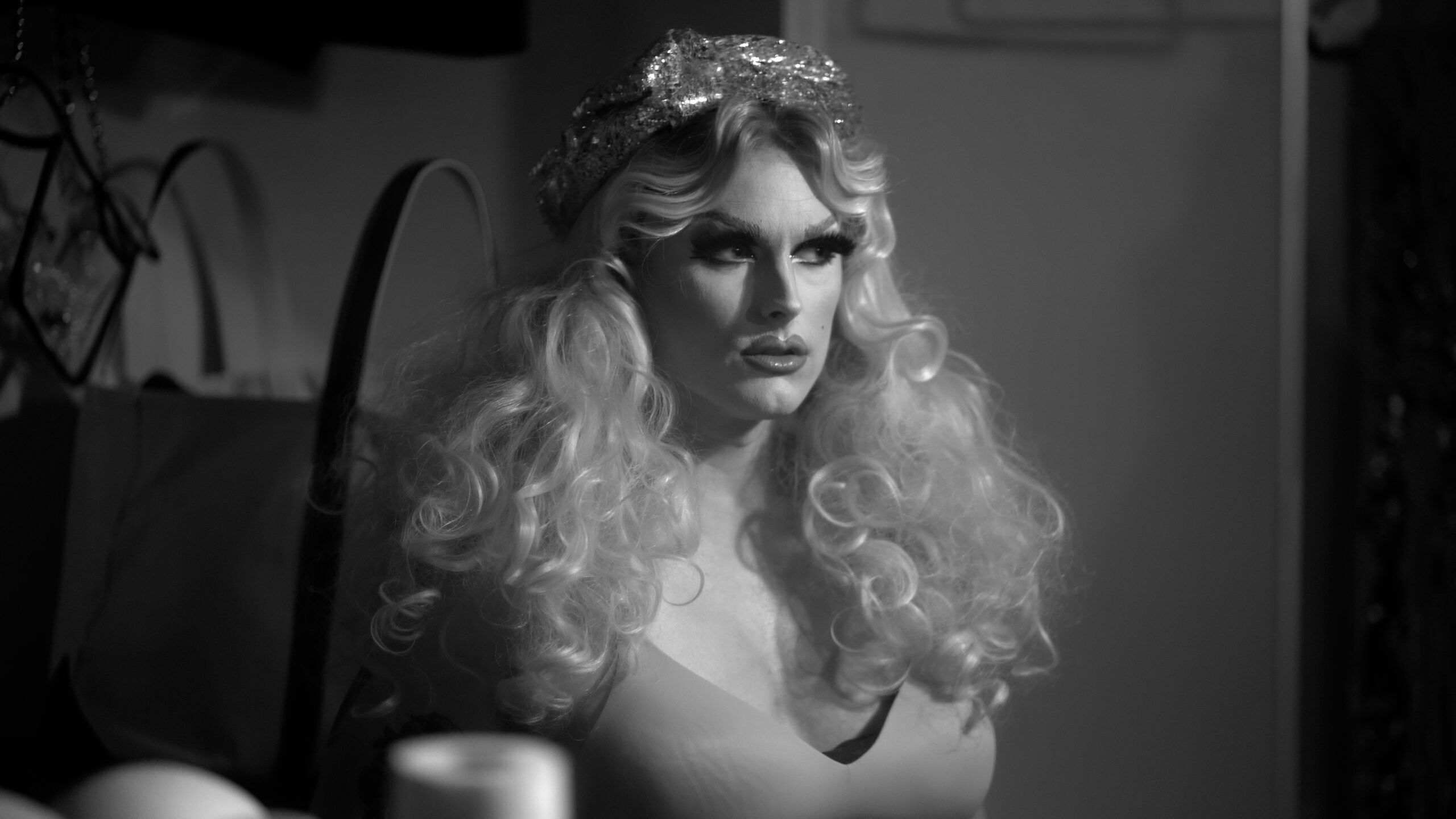Chrissy Judy is super gay. So gay it’s fully giving Cher throughout. But in a refreshing twist, it’s not about death and tragedy or coming out either. Instead, Todd Flaherty’s feature debut is all-too-rare in its focus on other elements of gay life, the everyday relationships that bind people as well as the existential angst that comes for us all.
That’s not to say Chrissy Judy is angsty or depressing: If anything, this often-hilarious festival fave is actually very affirming in the way it reflects how life changes and evolves as a queer person in your thirties.
Chrissy Judy stars Flaherty as the titular Judy, one half of a struggling drag act formed with best friend Chrissy. The pair are closer than close as we see during the film’s opening trip to Fire Island, where Chrissy and Judy share no qualms over hugging and even kissing while they’re out on the pull. However, that intrinsically queer platonic bond they share is suddenly torn apart when Judy decides to leave Manhattan – and Chrissy — for his new boyfriend in Philadelphia, a la Frances Ha.
Determined to succeed on his own, Chrissy bounces between New York, Philly, and Provincetown, Massachusetts, to refine his old-school drag act and fill the hole that Judy left in his life.
Along the way, Chrissy ends up getting another hole filled instead—more than once. But this film isn’t really about sex or romance, either. Instead, the love here is far more concerned with the bond two people can share without a sexual connection.
Chrissy and Judy are soulmates in a specifically queer way that might be hard for straight audiences to understand—or at least relate to—but the script doesn’t stop with just portraying their friendship. What happens when one of you decides to prioritize a heteronormative-style relationship over your bestie? And what about the one who’s left behind, the one who doesn’t feel a need to settle down in that kind of traditional way?
Flaherty’s Judy anchors the film with a mesmerizing subversion of frivolous gay cliches that flits in tone between funny and sharp to selfish, narcissistic, and even self-destructive. Judy is an absolute mess at points, but you’ll love him regardless. Who doesn’t love a hot gay mess?
Related:
My Favorite Gay Character of the Year is a Total Sociopath
“Rain Dogs” is, at heart, a story of chosen family. But it doesn’t sidestep the aspects of chosen family that can be just as abusive as biological family
In another timeline, Flaherty would be winning awards for Chrissy Judy beyond the queer festival circuit, and not just for his acting. Not only does he take the lead in Chrissy Judy, he also wrote, edited and directed the film too. It’s a major achievement made all the more impressive when you realize how little he made it for.
Originally, Flaherty and his brother, cinematographer Brendan Flaherty, planned to shoot Chrissy Judy for around $150,000, but then COVID happened, and suddenly they were forced to go ahead with just $20,000 in accordance with recently-enacted SAG-AFTRA rules.
The film hardly looks cheap: Although Chrissy might struggle to find the funds to support his drag, especially at first, Chrissy Judy itself is a thing of beauty from day one. The framing is precise and gorgeously lit in ways that enhance the monochrome aesthetic that’s giving throughout, channeling the same kind of old Hollywood glamor that Chrissy uses in her act.
Beyond the visuals, it’s clear that Flaherty also went down this black-and-white route to make the film feel timeless, evoking universal themes that transcend the modern tech and biting pop culture references you might usually expect from a story like this. It’s a smart move, sharpening the script’s focus to hone in on its central performances instead.
Chrissy Judy is one of those rare films that can appeal to broad audiences even as it doubles down on the very specific queer experiences we don’t get to see enough of onscreen. Straight viewers will only get half the story, however—much like Drag Race newbies forced to start by watching All-Stars first. And that’s ok, because some of us are super gay, and we deserve to see our super gay lives celebrated in films created by us, for us, without the endless deaths and coming-out stories we’ve grown used to.♦
Don't forget to share:
Help make sure LGBTQ+ stories are being told...
We can't rely on mainstream media to tell our stories. That's why we don't lock our articles behind a paywall. Will you support our mission with a contribution today?
Cancel anytime · Proudly LGBTQ+ owned and operated
Read More in Entertainment
The Latest on INTO
Subscribe to get a twice-weekly dose of queer news, updates, and insights from the INTO team.
in Your Inbox














